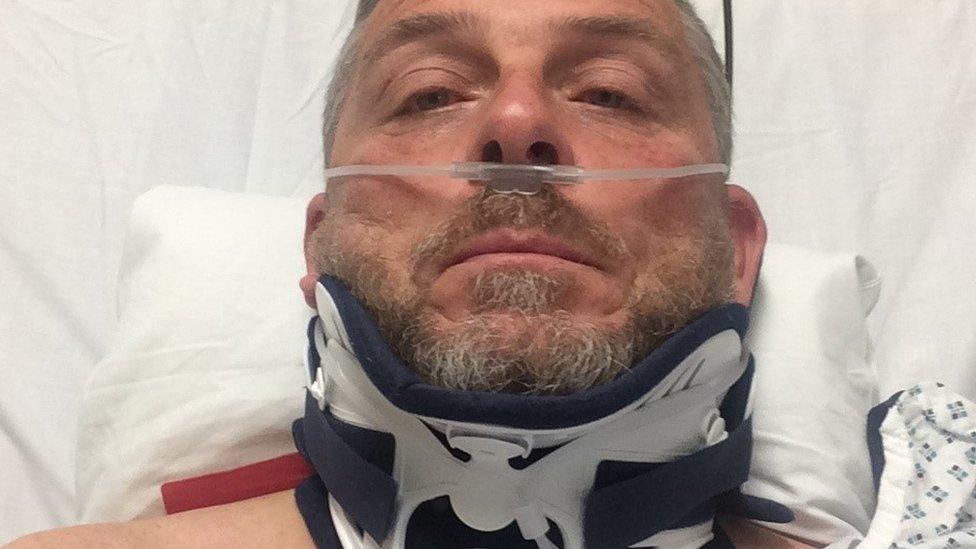Blood cancer patient finds funds for new research
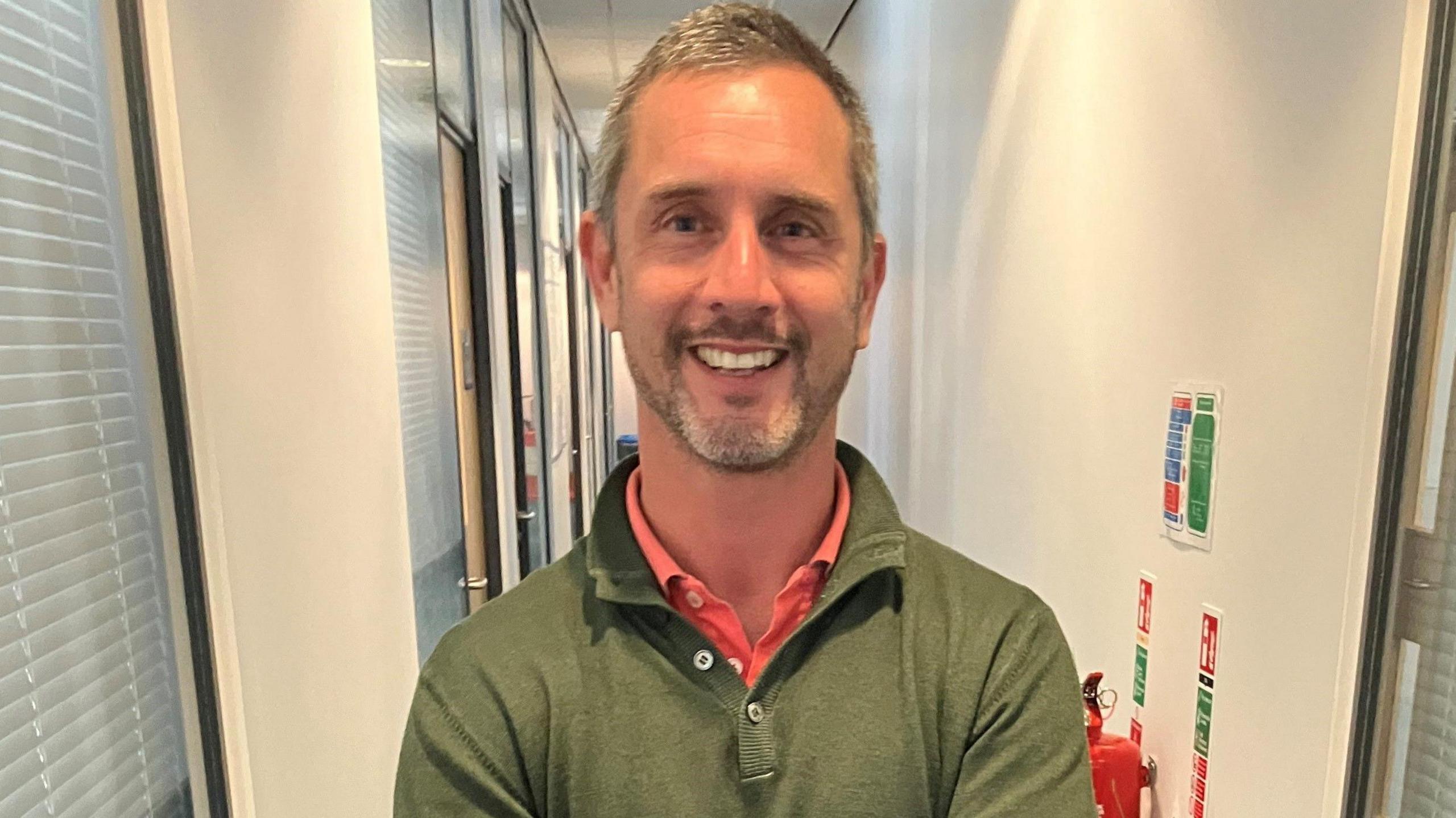
Peter McCleave has raised the funds to support new research into myeloma
- Published
A new academic research project into a form of incurable blood cancer is set to begin thanks to the fundraising efforts of a man diagnosed with the disease.
The Newcastle University study into myeloma will begin in January next year after Peter McCleave raised the £50,000 needed to fund it.
The 43-year-old was told he had the disease and, resultantly, about seven years to live in 2017, so he has spent the time raising awareness and cash.
He also signed up 112,000 people to a national register of potential stem cell donors.
Mr McCleave, a Newcastle University graduate originally from Whitby, North Yorkshire, said: "There aren’t enough people registered [as donors] at the moment - only about 4% of the UK population - but it’s very much predicated on genetic heritage, your ethnicity.
"If you’re a couple of generations of white European then you’ve got a pretty good chance of finding your match on the register today.
"My background is a mix of Chinese, Portuguese, Irish and English. And anyone from a non-white European heritage will struggle to get their stem cell donor match. You’ve got a 25 to 30% chance at best."
'More exciting'
It is hoped the research will decode the genetics of myeloma, find new treatments and give those diagnosed with the condition a sense of optimism.
Although a cure currently remains out of reach, Mr McCleave has yet to find a suitable donor match.
Dr Aneta Mikulasova, a research fellow at Newcastle University, said: "I have been working on myeloma for more than 10 years.
"I started during my studies and found it actually fascinating to look at the genetics of myeloma because it’s a very nice challenge, it’s very complex.
“There are many abnormalities. It becomes more and more exciting, because we’re having more technologies to use, to look at the bigger detail, understanding how it happened and how we can fight it in the future."
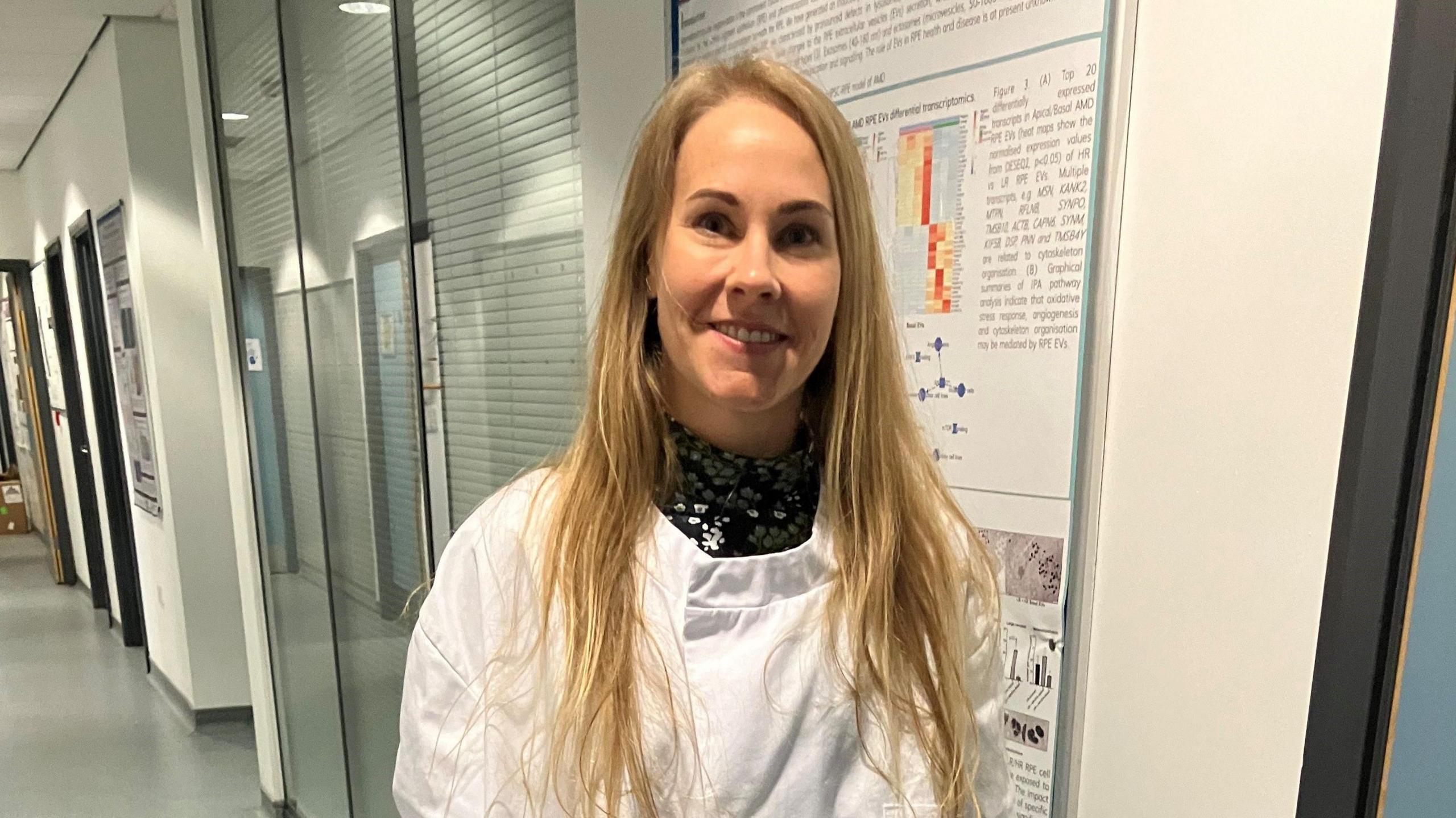
Dr Aneta Mikulasova has worked on myeloma for more than 10 years
The myeloma research project will launch fully in January 2025, but still has to win full ethical approval from the NHS.
That, however, should follow after an interview and proof of funding next month.
The research is funded for 12 months, but more donations are needed to extend its duration.
Follow BBC North East on X (formerly Twitter), external, Facebook, external and Instagram, external. Send your story ideas to northeastandcumbria@bbc.co.uk.
Related stories
- Published22 June 2024
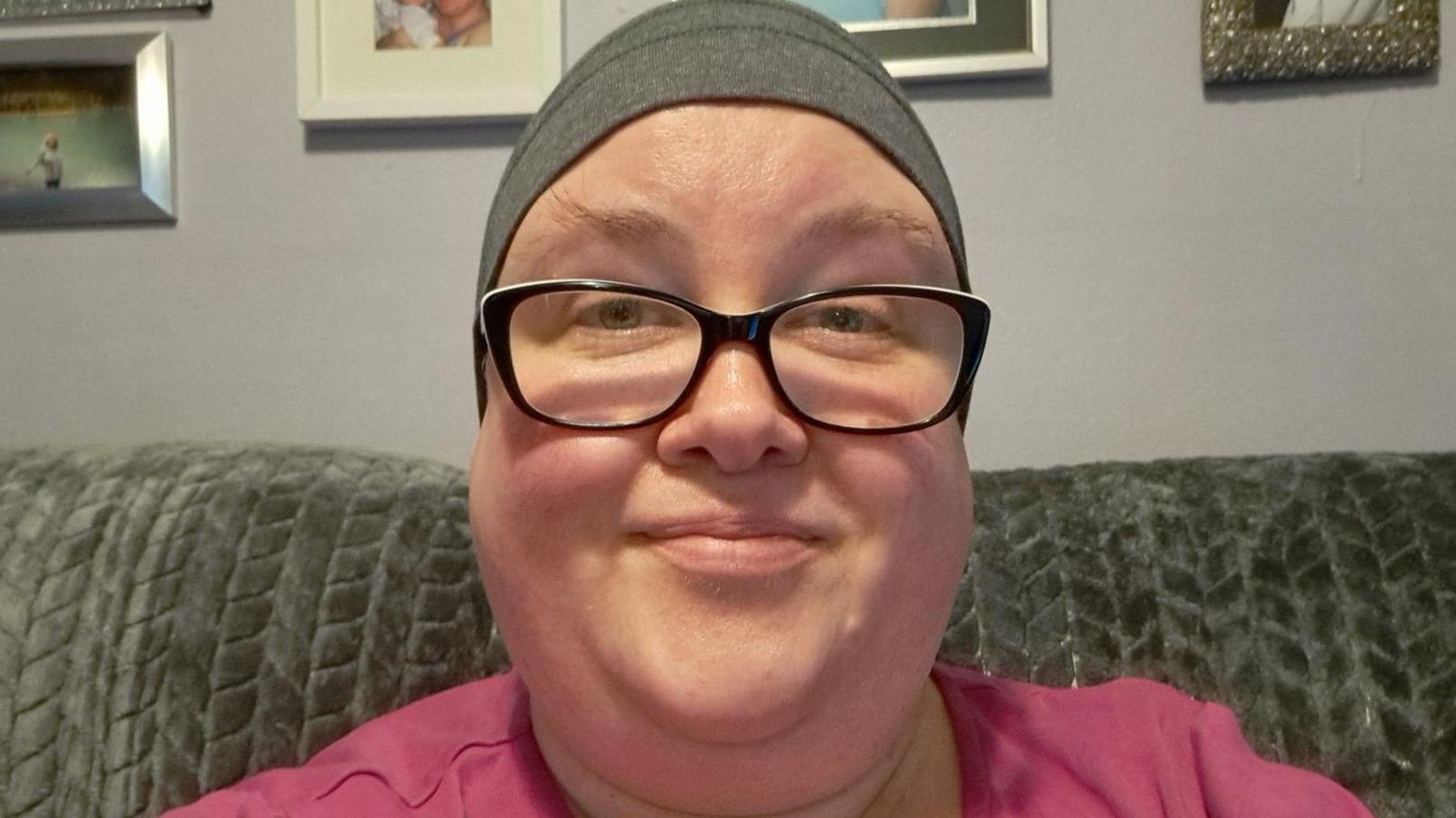
- Published17 June 2024
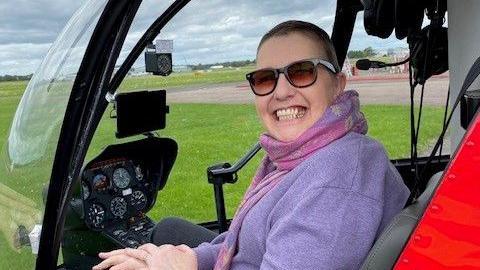
- Published26 June 2023
